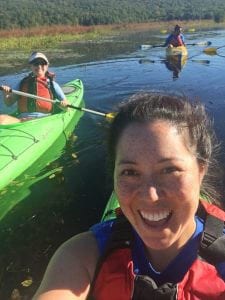Eleven-year-old Talia Duff finds herself in the rare situation of being one of only 22 people in the world to suffer from a rare disease.
Last year, Jocelyn Duff received the worst news of her life. Her daughter was diagnosed with “CMT4J” which is short for “Charcot Marie Tooth Type 4J.” It is a hereditary motor and sensory neuropathy that affects nerves and resides outside of the brain and spinal cord. To learn more, click here.
The doctors had told Jocelyn that they would have to essentially watch her grow weaker until she gave in to a respiratory illness like pneumonia.
It’s hard enough that Talia was already born with down syndrome, which has nothing to do with CMT4J. The disease soon began to reveal its face as Talia grew fatigued and lost her ability to breathe properly.
Within the last couple of years, Talia has moved from a walker to a wheelchair. Regular mundane things like brushing her teeth and turning the pages of a book are extremely difficult for her.
Because of the rareness of this disease, nobody was putting an effort into finding a cure. For Talia’s parents, that was unacceptable, so they created their own foundation to try and search for a cure themselves. They knew they couldn’t do it alone, however, so they sought out the help of some of the world’s leading experts in gene therapy. To help finance the research, they secured an NIH grant.
Because of their hard work, scientists in Jackson Laboratory in Bar Harbor, Maine, are using lab mice to replace faulty genes with potent ones. Their hope is that the FDA will approve of trials with humans, which could potentially lead to a cure for CMT4J. The FDA has been keeping a close eye on this disease for a while.
Simultaneously, Talia’s community of Ipswich have begun to contribute in unique ways. For example, a local robotics team invented a contraption that would aid Talia in moving her deltoid. It’s called “Project Deltoid.”
Miraculously, these little geniuses secured a $10,000 grant to fund a prototype. Like all great inventions, they worked in their garages during late nights and Skyped with older mentors and graduates for advice. It still needs work, but the students hope to have their contraption done by December, just in time for the holidays.







